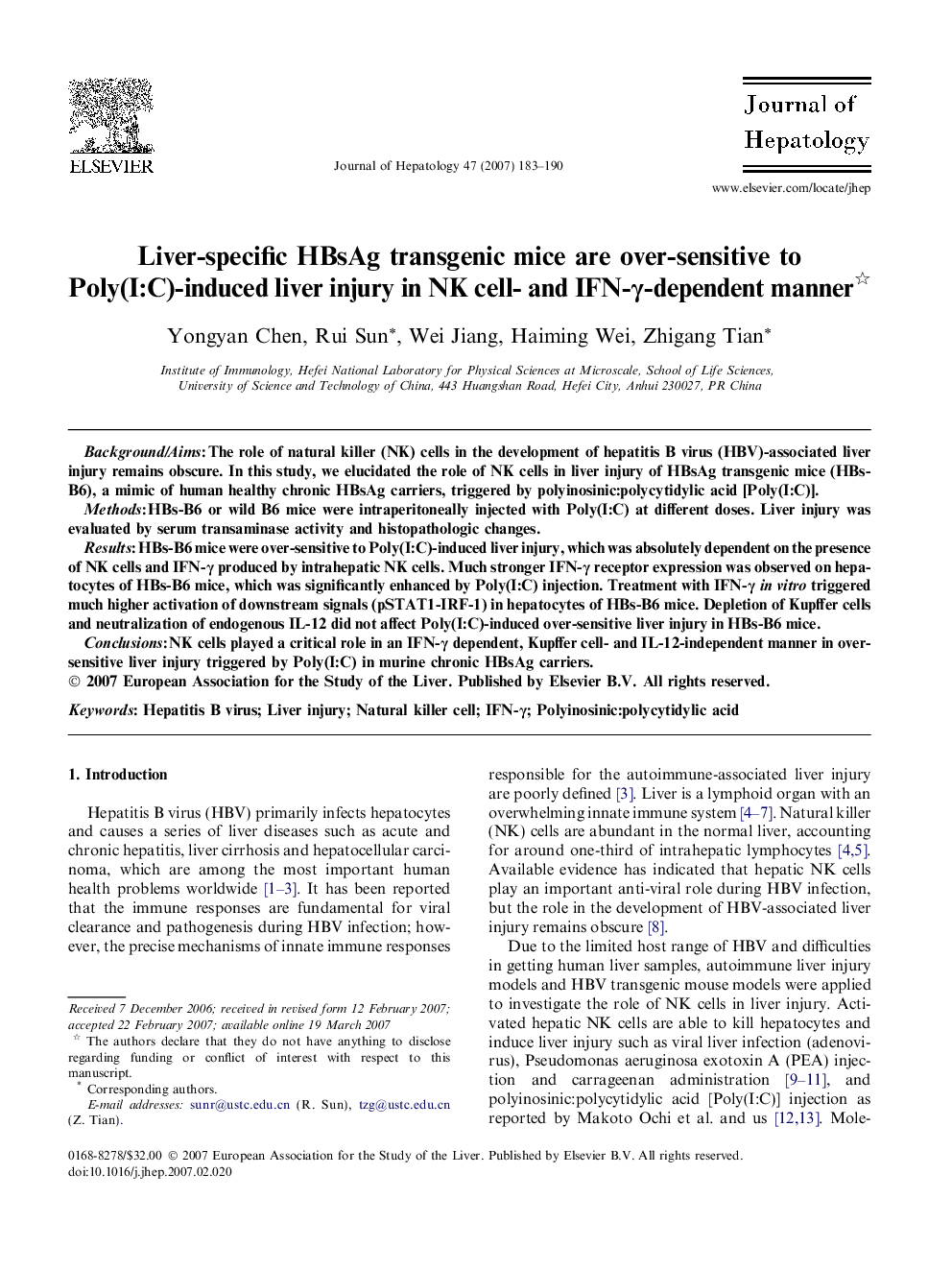| Article ID | Journal | Published Year | Pages | File Type |
|---|---|---|---|---|
| 3314648 | Journal of Hepatology | 2007 | 8 Pages |
Background/AimsThe role of natural killer (NK) cells in the development of hepatitis B virus (HBV)-associated liver injury remains obscure. In this study, we elucidated the role of NK cells in liver injury of HBsAg transgenic mice (HBs-B6), a mimic of human healthy chronic HBsAg carriers, triggered by polyinosinic:polycytidylic acid [Poly(I:C)].MethodsHBs-B6 or wild B6 mice were intraperitoneally injected with Poly(I:C) at different doses. Liver injury was evaluated by serum transaminase activity and histopathologic changes.ResultsHBs-B6 mice were over-sensitive to Poly(I:C)-induced liver injury, which was absolutely dependent on the presence of NK cells and IFN-γ produced by intrahepatic NK cells. Much stronger IFN-γ receptor expression was observed on hepatocytes of HBs-B6 mice, which was significantly enhanced by Poly(I:C) injection. Treatment with IFN-γ in vitro triggered much higher activation of downstream signals (pSTAT1-IRF-1) in hepatocytes of HBs-B6 mice. Depletion of Kupffer cells and neutralization of endogenous IL-12 did not affect Poly(I:C)-induced over-sensitive liver injury in HBs-B6 mice.ConclusionsNK cells played a critical role in an IFN-γ dependent, Kupffer cell- and IL-12-independent manner in over-sensitive liver injury triggered by Poly(I:C) in murine chronic HBsAg carriers.
